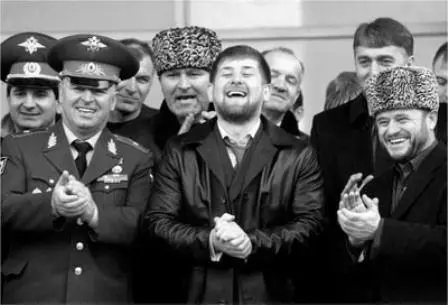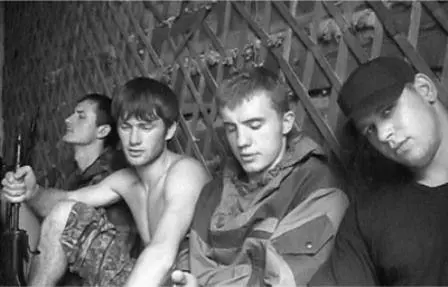Ben Judah - Fragile Empire - How Russia Fell in and Out of Love With Vladimir Putin
Здесь есть возможность читать онлайн «Ben Judah - Fragile Empire - How Russia Fell in and Out of Love With Vladimir Putin» весь текст электронной книги совершенно бесплатно (целиком полную версию без сокращений). В некоторых случаях можно слушать аудио, скачать через торрент в формате fb2 и присутствует краткое содержание. Город: London, Год выпуска: 2013, ISBN: 2013, Издательство: Yale University Press, Жанр: Политика, Публицистика, на английском языке. Описание произведения, (предисловие) а так же отзывы посетителей доступны на портале библиотеки ЛибКат.
- Название:Fragile Empire: How Russia Fell in and Out of Love With Vladimir Putin
- Автор:
- Издательство:Yale University Press
- Жанр:
- Год:2013
- Город:London
- ISBN:978-0-300-18121-0
- Рейтинг книги:5 / 5. Голосов: 1
-
Избранное:Добавить в избранное
- Отзывы:
-
Ваша оценка:
Fragile Empire: How Russia Fell in and Out of Love With Vladimir Putin: краткое содержание, описание и аннотация
Предлагаем к чтению аннотацию, описание, краткое содержание или предисловие (зависит от того, что написал сам автор книги «Fragile Empire: How Russia Fell in and Out of Love With Vladimir Putin»). Если вы не нашли необходимую информацию о книге — напишите в комментариях, мы постараемся отыскать её.
is the fruit of Judah’s thorough research: a probing assessment of Putin’s rise to power and what it has meant for Russia and her people.
Despite a propaganda program intent on maintaining the cliché of stability, Putin’s regime was suddenly confronted in December 2011 by a highly public protest movement that told a different side of the story. Judah argues that Putinism has brought economic growth to Russia but also weaker institutions, and this contradiction leads to instability. The author explores both Putin’s successes and his failed promises, taking into account the impact of a new middle class and a new generation, the Internet, social activism, and globalization on the president’s impending leadership crisis. Can Russia avoid the crisis of Putinism? Judah offers original and up-to-the-minute answers.
Judah’s dynamic account of the rise (and fall-in-progress) of Russian President Vladimir Putin convincingly addresses just why and how Putin became so popular, and traces the decisions and realizations that seem to be leading to his undoing. The former Reuters Moscow reporter maps Putin’s career and impact on modern Russia through wide-ranging research and has an eye for illuminating and devastating quotes, as when a reporter in dialogue with Putin says, “I lost the feeling that I lived in a free country. I have not started to feel fear.” To which Putin responds, “Did you not think that this was what I was aiming for: that one feeling disappeared, but the other did not appear?” His style, however, feels hurried, an effect of which is occasional losses of narrative clarity. In some cases limited information is available, and his pace-maintaining reliance on euphemistic, metaphorical, and journalistic language can leave readers underserved and confused. Judah is at his best when being very specific, and perhaps the book’s achievement is that it makes comprehensible how Putin got to where he is; those wondering how Putin became and remained so popular will benefit from this sober, well-researched case. (June)
A journalist’s lively, inside account of Russian President Putin’s leadership, his achievements and failures, and the crisis he faces amidst rising corruption, government dysfunction, and growing citizen unrest. From Book Description





























